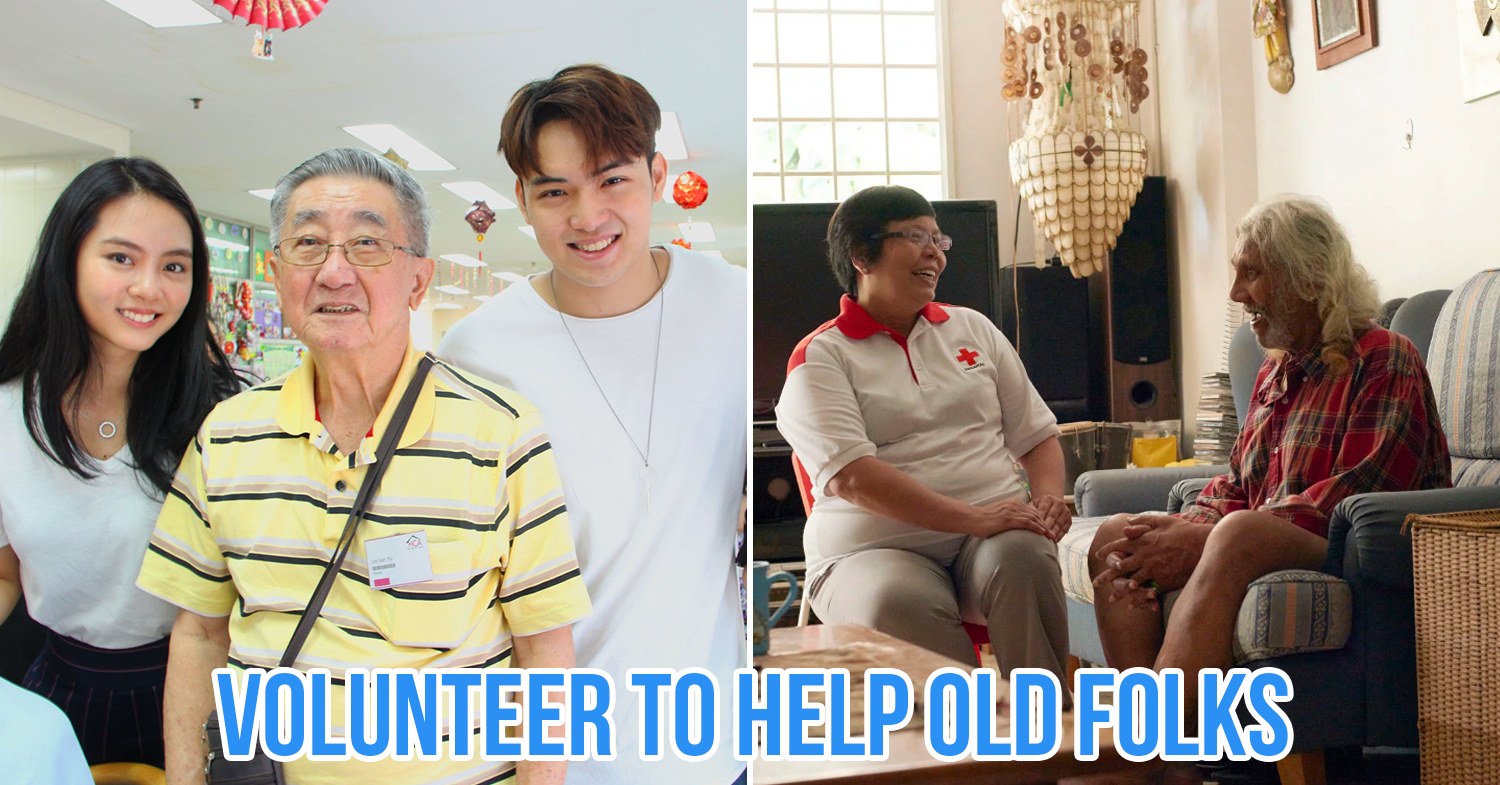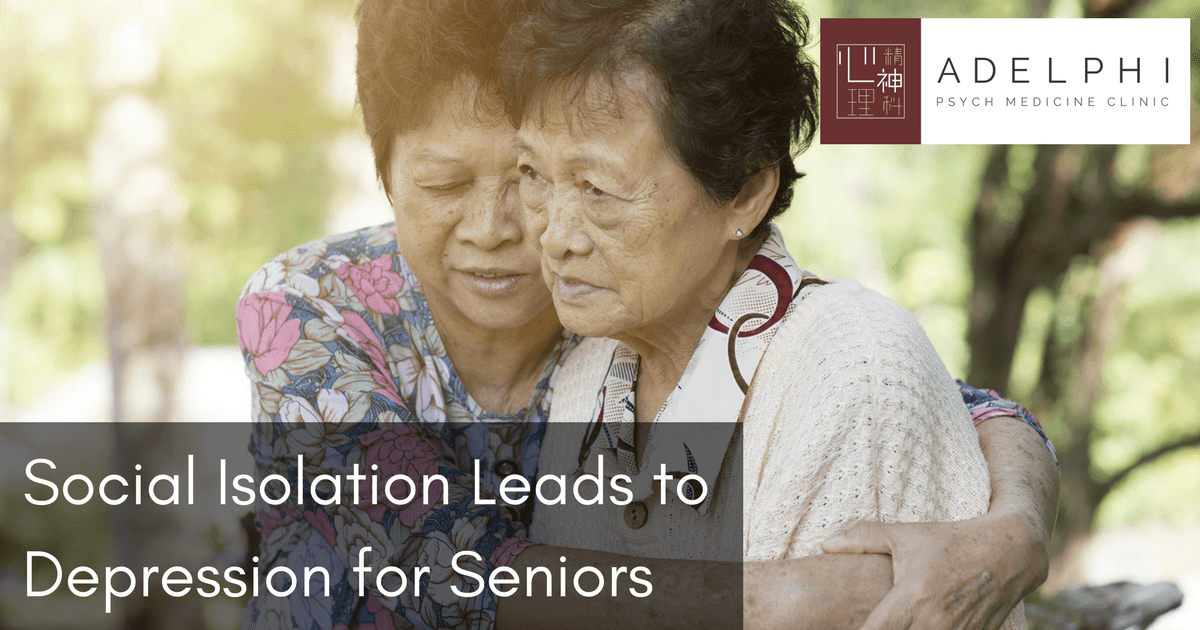Finding Joy in Companionship: The Importance of Befriending Services for Seniors
Loneliness and social isolation have become pressing issues affecting the well-being of older adults worldwide. In our fast-paced and interconnected society, it is all too easy for seniors to find themselves disconnected from social networks, leading to a profound sense of isolation. Research has shown that social isolation among older adults can be as detrimental to health as smoking 15 cigarettes a day (Holt-Lunstad, Smith, & Layton, 2010). This alarming statistic underscores the urgent need to address the issue and foster meaningful connections for our elderly population.
In Singapore, a study conducted by the Institute of Mental Health revealed that one in five seniors experiences social isolation (Institute of Mental Health, 2017). The rapidly aging population, coupled with changing family dynamics and urbanization, has contributed to a growing number of elderly individuals who find themselves lacking the social support they need. The impact of social isolation on the mental and physical well-being of older adults cannot be underestimated, highlighting the critical importance of befriending services tailored to their unique needs.
As we delve into the topic of befriending services for seniors, let us explore how these invaluable services provide companionship, support, and a lifeline to combat the pervasive issue of loneliness. Together, we will uncover the transformative power of human connection and the joy that can be found in fostering meaningful relationships in the lives of our cherished elderly community.
Understanding Loneliness and Social Isolation
Loneliness and social isolation are two interconnected but distinct concepts that profoundly impact the well-being of the elderly population. By delving into their definitions, prevalence, and consequences, we can grasp the urgency of addressing these challenges and appreciate the significance of befriending services in promoting social connectedness and overall quality of life.Defining Loneliness and Social Isolation
Loneliness refers to the subjective experience of distress or dissatisfaction resulting from a perceived discrepancy between desired and actual social relationships (Perlman & Peplau, 1981). It is a deeply emotional state that can arise even when surrounded by people, highlighting the importance of meaningful connections and genuine companionship.
Social isolation, on the other hand, refers to the objective absence or minimal contact with social networks and community involvement (Hawkley & Cacioppo, 2010). It occurs when individuals lack regular interactions and meaningful relationships, leading to a sense of disconnectedness from society.
Prevalence of Loneliness Among Older Adults
Loneliness among older adults is a pervasive issue that deserves attention and intervention. Various studies have revealed high prevalence rates of loneliness among seniors, indicating the widespread impact on their lives. In Singapore, the Ministry of Social and Family Development reported that around 32% of elderly individuals experience moderate to severe loneliness (Ministry of Social and Family Development, 2018).
Several factors contribute to the increased vulnerability of older adults to loneliness, including the loss of loved ones, retirement, reduced mobility, and changing social roles. These life transitions and societal shifts can disrupt social networks, leaving older adults susceptible to feelings of isolation.
Negative Consequences of Social Isolation
Physically, social isolation has been associated with an increased risk of cardiovascular diseases, compromised immune function, and a higher mortality rate among older adults (Holt-Lunstad et al., 2015). It can contribute to sedentary behavior, poor self-care, and a decline in overall health.
Psychologically, social isolation has been linked to higher rates of depression, anxiety, cognitive decline, and a decline in overall subjective well-being (Cacioppo et al., 2010). The lack of social interaction and emotional support can exacerbate mental health issues and diminish the overall quality of life for seniors.
Understanding the profound impact of loneliness and social isolation on the elderly population is crucial in recognizing the urgency of implementing interventions and support systems. Befriending services play a vital role in addressing these challenges, providing companionship, and fostering meaningful connections that have the potential to transform the lives of seniors.
The Role of Befriending Services
Befriending services play a vital role in addressing the pressing issue of loneliness among the elderly population. By providing companionship, support, and a sense of connection, these services aim to combat social isolation and promote overall well-being.
What are Befriending Services and How Do They Work?
Befriending services, also known as befriending programs or schemes, are structured initiatives that facilitate meaningful relationships between volunteers or trained individuals and elderly individuals who may be experiencing loneliness or social isolation. These services aim to provide regular social contact, companionship, and emotional support to enhance the well-being of older adults.
Befriending services operate through various modes, including in-person visits, telephone conversations, or even virtual interactions through video calls or online platforms. The frequency and duration of befriending sessions may vary depending on the needs and preferences of both the elderly individuals and the volunteers or trained befrienders.
Objectives and Benefits of Befriending Services for the Elderly
The primary objective of befriending services is to alleviate loneliness, social isolation, and the associated negative consequences among older adults.
a. Companionship and Emotional Support: Befriending services offer a friendly presence and emotional support, ensuring that older adults have someone to talk to, share experiences with, and build meaningful relationships. It facilitates the development of meaningful relationships based on trust, empathy, and shared interests. These connections provide older adults with a sense of belonging and social support.
b. Reduction of Loneliness and Isolation: By providing regular social contact and interaction, befriending services help combat the feelings of loneliness and isolation that many elderly individuals experience, fostering a sense of belonging and connectedness.
c. Enhanced Mental Health and Well-being: Befriending services have been shown to contribute to improved mental health outcomes, such as reduced depressive symptoms, increased self-esteem, and greater life satisfaction among the elderly (Victor et al., 2009).
d. Increased Social Engagement: Befriending services encourage older adults to participate in social activities, community events, and other programs, promoting their social integration and engagement. By expanding social networks, older adults can engage in new social opportunities, relationships, and resources. 
Overall, befriending services encourage older adults to stay socially engaged, maintain an active lifestyle, and pursue their interests and passions that promote active aging. This holistic approach promotes overall well-being and a higher quality of life.
Research studies have demonstrated the positive impact of befriending services on combating loneliness and enhancing the well-being of the elderly. For example, a study by Victor et al. (2018) found that older adults who participated in befriending schemes reported improved quality of life, increased social support, and reduced loneliness.
How to Get Involved
If you are inspired by the impact of befriending services and would like to make a difference in the lives of older adults, there are various ways you can get involved and contribute to these invaluable initiatives. Here's how you can participate in befriending services as a volunteer and support the promotion of befriending services in your community.
Becoming a Befriending Volunteer
Many organizations and agencies in Singapore offer befriending services and welcome volunteers who are passionate about making a positive impact in the lives of older adults. To get involved, consider the following steps:
a. Research Local Befriending Service Providers: Look for reputable organizations in your area that offer befriending services. Some notable examples in Singapore include the RSVP Singapore - The Organisation of Senior Volunteers and the AWWA Befriending Service.
b. Contact Befriending Service Providers: Reach out to these organizations to express your interest in becoming a volunteer. They will provide you with the necessary information, application procedures, and any training requirements.
c. Attend Volunteer Training: Depending on the organization, you may be required to undergo volunteer training to equip yourself with the necessary skills and knowledge for befriending roles. This training ensures that you are well-prepared to engage with older adults and provide meaningful support.
d. Engage in Befriending Activities: Once accepted as a volunteer, you will be matched with an elderly individual or assigned to participate in befriending activities. Regular visits, phone calls, or virtual interactions will allow you to establish a genuine connection and provide companionship to combat loneliness.
Supporting and Promoting Befriending Services
Even if you are unable to volunteer directly, there are still ways to support and promote befriending services within your community:
a. Spread Awareness: Share information about befriending services through your social networks, local community groups, or senior centers. By raising awareness, you can help connect older adults who may benefit from these services and encourage potential volunteers to get involved.
b. Volunteer Recruitment: If you know of individuals who are interested in volunteering or have relevant skills, encourage them to consider becoming befriending volunteers. Provide them with contact details or links to the organizations offering befriending services in Singapore.
c. Collaborate with Organizations: Reach out to local community organizations, retirement homes, or senior centers to explore potential collaborations or partnerships to expand the reach of befriending services. This could involve organizing joint events or workshops aimed at combating loneliness and fostering social connections.
By actively participating in befriending services or supporting and promoting them in your community, you can contribute to the well-being of older adults and help combat the pervasive issue of loneliness among seniors.
Here are the contact details and websites of some befriending service providers in Singapore that you can reach out to:
RSVP Singapore - The Organisation of Senior Volunteers
Website: https://www.rsvp.org.sg/
Contact: +65 6259 0802
AWWA Befriending Service
Website: https://www.awwa.org.sg/
Contact: +65 6511 5300
Do visit their websites or contact them directly for the most up-to-date information and volunteer opportunities. 
Conclusion
Loneliness and social isolation among the elderly are significant challenges that impact their overall well-being and quality of life. However, through the implementation of befriending services, we can make a profound difference in combating these issues and fostering meaningful connections for older adults. By providing companionship, support, and a sense of belonging, befriending services play a crucial role in addressing the loneliness epidemic among seniors.
Remember, every small act of kindness and companionship matters. Together, we can make a difference in the lives of the elderly, fostering joy, and a renewed sense of purpose. Let us embrace the power of human connection and ensure that no elderly individual feels alone or isolated in their later years.
So, whether you choose to volunteer your time, spread awareness, or support befriending services in other ways, know that your contribution can bring immeasurable joy and companionship to the lives of seniors in need. Together, let us forge a future where older adults thrive in an environment of love, understanding, and genuine human connection.











Comments
Post a Comment